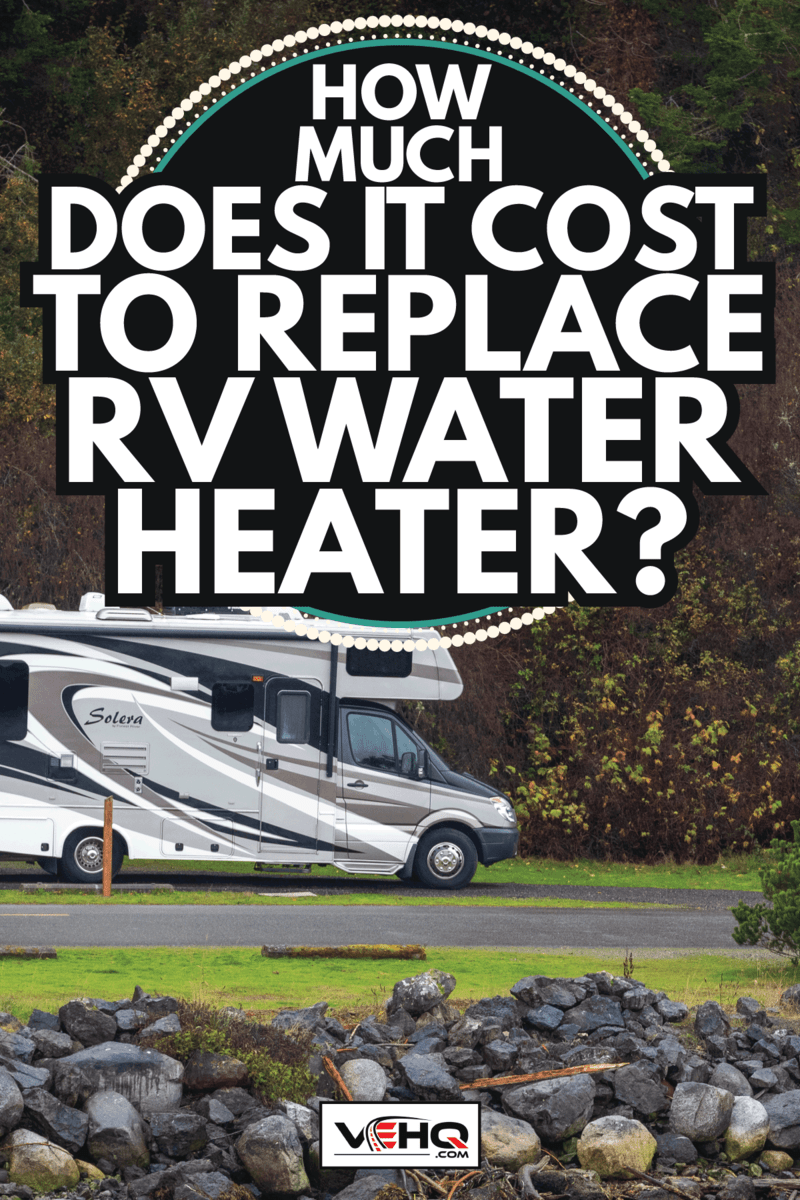If you're already an RV owner, you're familiar with the regular costs of maintenance. There's plenty of everyday items that take care, attention, and money. But, one thing that comes up infrequently is having to replace your RV water heater. You can go years before needing to shell out cash out for a new water heater, and it may be one thing you've never spent much time thinking about. So just how much does it cost to replace the RV water heater?
The cost of RV water heaters varies, depending on the kind of fuel and the tank. Tanks can be either gas (propane) or electric. Electric water heaters are usually a bit less expensive, initially. Propane, however, can be less costly over time as the fuel is more affordable.
As far as the type of tank, the three most common options are:
- Standard 6-gallon tank, which can cost around $400.
- Standard 10-gallon tank, which is around $700 for electric and $800 for gas.
- Tankless water heater. This is the most expensive, at closer to $1000.
Keep reading to learn more - is electric or gas better? What size tank do you need? How long will your new tank last, and how can you take care of it? Should you turn it off or leave it on? We'll cover all of that and more in this article to help you get the most life out of your water heater.

What Are The Differences In Tanks?
In an RV, standard water tanks are usually 6 or 10 gallons. It's possible to find other sizes, but these two are considered the most common. A 6-gallon tank is usually the cheapest, which seems logical. Unfortunately, it just isn't always enough, depending on your needs.
6-Gallon
If you have a small RV for just one or two people and tend to use it just on the weekends, 6-gallons may be fine. But if you're going to be there for any length of time, cycling through a lot of showers, it can get tedious. Six gallons only provides a very short shower, and you'll need to have time in between while the water reheats.
10-Gallon
A 10-gallon tank provides a little more hot water, but you still have to wait for the tank to reheat after each use. It's a step in the right direction but not always convenient enough for a large family or someone who likes access to long, hot showers.
Tankless
Tankless water heaters begin heating as soon as the water comes on. There's no need to sit and wait while a tank of water comes up to temperature. If you aren't connected to a steady water stream, like at an RV park, the burner shuts off automatically when you run out of water.
The tankless heater is a bit more expensive, but for some people, the convenience is priceless. Camper Report also states that they also use less energy once installed, so the savings can add up to offset the cost.
How To Replace The Tank?
Many RV owners consider the replacement of the hot water tank to be a "DIY" project. It's not particularly hard, and there isn't much extra cost involved this way. Doing it yourself takes around two hours or less. YouTube is full of useful videos, such as this:
If you decide that you need professional help, that will drive up your final cost. Expect to pay another couple hundred bucks for this service, commonly offered at RV service.
Which Is Cheaper To Run: RV Gas Or Electric Water Heater?
This question isn't as simple to answer as it might seem. If you're staying at an RV park where you can hook up to the park's electricity, the electric water heater is cheaper. The park covers the cost for you, and you don't have the additional propane cost.
But if you'll always be paying the bill, then propane gas is often cheaper. This varies some - the price of propane fluctuates in different areas and at different times. It also has the added advantage of being portable. No matter where you go, even if there's no way to access electricity, you have hot water as long as your tank is full.

Electric heaters can be left on for long periods of time without wasting as much energy. The heating element goes off by itself when not in use. This means it doesn't draw as much fuel when left on as a gas tank.
Should You Leave RV Water Heater On All The Time?
Whether or not you can leave your RV's water heater on all the time depends on a few things. First, what kind of a heater - gas or electric.
A gas (or propane) water heater should never be left on while the RV is moving. It's just not safe. As you travel, the lines connecting the tank to the appliances may shift. If this happens and the tank is still on, it can be dangerous. Propane can potentially even cause a fire or explosion. Always turn off the tank before hitting the road.
An electric water heater, on the other hand, can be left running 24/7 safely. There's no real risk involved, other than perhaps the cost.

In either a gas or electric heater, it's almost always more expensive to run it constantly. If you find that you need hot water all day long, it might make sense to leave the heater on. But this is rarely true. Even if you use the RV every day, you can probably turn the heater off at night.
It usually only takes about half an hour to heat the water anyway. There's not much reason to keep the heater on for hours with no use. Just turn it on shortly before you need it.
If you aren't concerned about the energy waste, the actual heater itself isn't damaged by being left on. The heater parts aren't prone to any extra stress or "wear and tear" from being turned on and off. The heater won't degrade any faster (or slower) regardless of the amount of use.
How Long Do RV Water Heaters Last?
The best way to keep your RV's water heater in good shape is with proper maintenance. On average, a water heater should last ten years or more. To help ensure that you get the maximum life from your heater, do the following:
- Keep the water tank full when traveling, and always make sure that there is water in the tank before turning on the heater.
- Flush your RV hot water tank every six months.
- Use an anode rod, and replace it yearly. The rod prevents a steel water tank from eroding.
Click here to see these anode rods on Amazon.
Learn more about how to flush the system and regular maintenance of the water heater here:
In Closing
6-gallon tanks are the most affordable and come in most RVs. However, this isn't always a big enough tank to be convenient. They run out of hot water too quickly to accommodate heavy water usage. Upgrading to a 10-gallon tank might be better for a large family - or even a tankless water heater if you can afford the initial expense.
Propane costs a bit more initially but is more affordable over time as the fuel costs less. Electric water heaters are cheaper but only work when you have access to electricity, which may not be useful enough for people who like to camp outside of more traditional RV parks. Ultimately, the one that works best for you depends on your personal needs and use.


Thank you for posting that the best way to have a working water heater in an RV is to keep up on the maintenance properly. I did not know that a water heater in a mobile home could last ten years. We had ours for only five years and we had to replace it. We never kept up on its maintenance through the years. It is good to know that the hot water tank should be flushed every six months, as well.